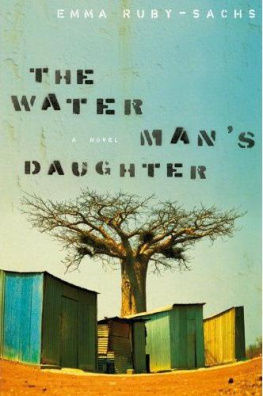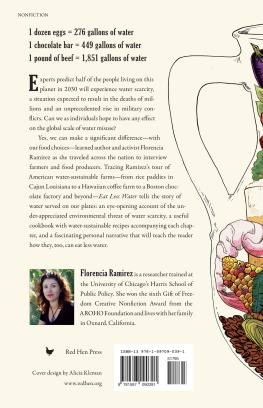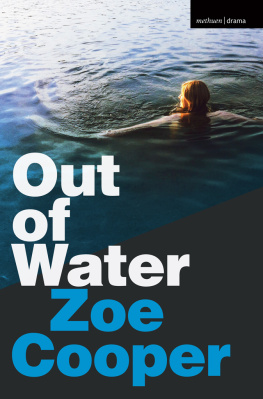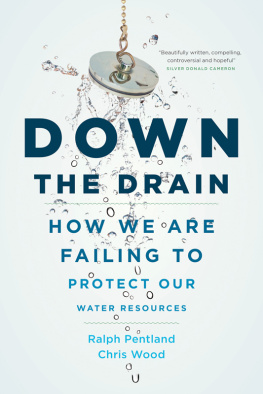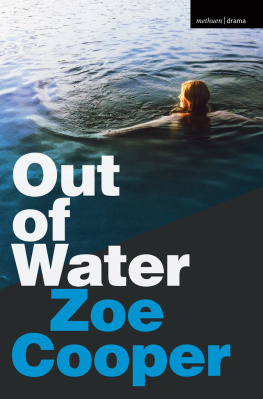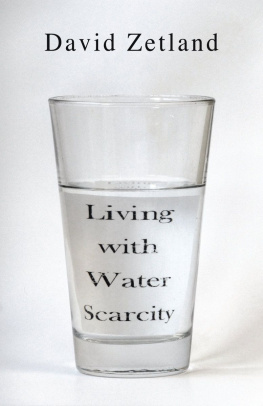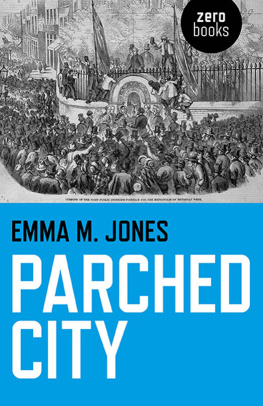ACKNOWLEDGEMENTS
I learned a great deal about writing, story, and the process of putting a book together from the friendship of Louise Dennys, Ric Young, Ann Marie MacDonald, Alisa Palmer, Naomi Klein, Avi Lewis, Patricia Rozema, Lesley Barber, Paula Todd, Anne Greene, and Jane Saks.
Michael Helm, Anne Greene, Harriet Sachs, Clayton Ruby, Louise Dennys, Karen Connelly, Karen Wookey, Paula Todd, and Jane Saks read early drafts of this book. Their feedback and patience was invaluable. My agent, Jackie Kaiser, took me in and found a home for this book against impossible odds. Grateful thanks to my editor, Lara Hinchberger, and to Ellen Seligman and Kendra Ward, for all their help and support.
The stories and events in this book were inspired by research done in South Africa in 2003 and 2004. That research, and my time there, could not have been as rich and rewarding without the staff at Schools for International Training, Zed McGladdery, Shane Duffy and Nomawethu Fonya, and the people who took me in during my stay in Cape Town and Johannesburg, Yolisa Cuku, Litha Cuku, Alutta Cuku, Mira Cuku, Virginia Setshedi, Nomfundo Setshedi, Relebogile Setshedi, and Tracey Fared. Many women involved in the anti-privatization movement talked to me about their experiences, including Mama Dalina, Hameeda Deedat, Linah Gcumisa, Bongani Lubisi, Zodwa Madiba, Zanele Mahamba, Elizabeth Mokgatle, Eunice Mthembu, Florence Nkwashu, Maniera Peters, Sindiswa Titi, and Nonhlanhla Vilakazi. Victor Lakay and Alvin Anthony helped shape my research. The Zulu translations in this book were completed with the help of Mpume Nkosi and Hlonipha Mokoena. Mistakes or liberties taken are entirely my own.
This project has taken many years and, so, it is the product of many years of support and love from my family and friends. My sister, Kate Ruby-Sachs, encouraged me from the beginning. My parents and grandparents, Geoffrey and Pamela Sachs, gave me the freedom and the confidence to pursue the writing pipe dream. I owe a debt of gratitude to those listed above, as well as to Jane Sachs, Andreas Agas, Georgia Sachs-Agas, Romie Sachs-Devere, Simon Sachs, Danette MacKay, Charlotte Sachs, Adrienne Sachs, Tony Sachs, Joyce Cohen, Bailey Cohen-Krichevsky, Vilma DaSilva, Rachel Sutherland, Betty Orr, Nancy Goodman, Brent Knazen, Frank Addario, Heidi Rubin, Marial Addario, Katie McKenna, Christin Baker, Deb Mell, Brian Blair, Nicole Schmidt, Jackie Pye, Liana Buccieri, Chad Kampe, Montana Burnett, Nicole Bashor, Olivia St. Clair, Nicole Naghi, Jackie Tate, Rick Salter, Liora Salter, Prerna Tomar, Jacoba Rozema-Barber, Caitlin Snow, Alex Leo, Betsy Ware-Fippinger, Regan Doody, Jean Friedman-Rudovsky, Shireen Tawil, Christopher Kaminstein, Daniel Naymark, Joanna Lambert, Stuart McLean, Max Mishler, Ron Murphy, Ashley Peoples, Sarah Polley, Moran Sadeh, Brian Shiller, Stacy Zosky, Mandy Machin, Harvey Strosberg, Jay and Jordana Strosberg, Sharon Bedard, Jorge Soni, Ariel Lewiton-Lown, Kathleen Trotter, and my friends and colleagues at Avaaz.
ONE
N OMSULWA CROUCHES NEXT TO A BENCH LINED WITH men in tan work suits. Her thighs press against her calves and the sweat that gathers between them is uncomfortable. She squints, looking out over the neighbourhood she used to play in as a child. One hand wipes her carefully twisted hair out of her eyes. It is hot for fall, feeling more like the unbearable city summers when the township hides under metal roofs, trying to move as little as possible.
Mothers begrudge each step on their way to the store next to where Nomsulwa waits. Their children whinge and twist, dragged behind or strapped to broad backs. Nomsulwa looks for evidence of heat exhaustion among the crisp white shirts and shorts of the workmen across the street, but they keep moving at a steady pace. The coloured foreman lighter-skinned than his employees keeps his hands in his pockets, walking along the line of men, inspecting pulsing black forearms and straining black necks. They shovel like a single machine, and Nomsulwa understands why these men were plucked from township construction jobs and transferred to the big municipal water company. They are the best of the ragtag group that waits by Phiris central station, hoping the company vans will drive them into Johannesburg for one good days work and enough money to last their families for the week.
Nomsulwa is not the only one watching them. Her cousin sits on his own corner a block and a half down and across the orange dirt road. She tries not to look at Mira, the way he lags against the bench pretending to watch for passing women and only gently glances in the direction of the workmen. No one must know what they are watching for. Nomsulwa doodles in the sand at her feet, committing to memory where the pipes attach, at what angle they enter the ground, and how many minutes it takes to dig the ditches they are housed in. She counts the parts fourteen on this street. Fourteen large steel pipes to facilitate Phiris new water system.
Once the steel is laid the digging begins again, transferring the dirt from its neat piles back into the ground. Periodically, the men use a hose connected to a truck behind them and water the area, persuading the earth to congeal and pack each crevice of the ditch. There are eight layers: dirt, then water, then more dirt, until finally the sand is flat. Some of the men run the hose one last time and the others rest on their heels, mimicking Nomsulwas pose. Only now can she see their exhaustion, the way the sweat drips through their shirts and down their legs. The logo for the Amanzi water company on the front of each of their uniforms is crumpled, some completely obscured by yellow sand.
The foreman barks an order and the hose abruptly shuts off. There are rivers cascading through the newly laid earth, and, as the men begin to congregate around their truck, children materialize from doorways of the tenant housing complexes nearby and run to the muck. They play in the wet sand, using sticks to create patterns, while the workmen drink water on their break. The children get no more than five minutes before the foreman shoos them away, and a new contraption, wide and flat, is pushed across the wet ground so that the designs disappear and the dug up stretch matches the even height of the rest of its surface.
Nomsulwa checks her watch. It is four oclock. The road will be dry and hardened before nightfall after all this sun. That will make it more difficult to dig into again.
She stands up. Her knees feel weak from the squatting but she doesnt show it as she saunters from her post. She takes side streets back to her house. The plans are finalized. Today confirmed how many pipes they must remove to ensure that the water system will be delayed until the cold, wet weather makes it almost impossible to lay it in the ground again.
As Nomsulwa makes her way through her township she passes the colourful array of houses stuck together in the downtown core. Here, the materials used in building are mismatched and scrounged from construction sites in Johannesburg: eGoli, the City of Gold, the only place where wood, bricks, and corrugated metal can be purchased by the homeless for a reasonable price. Rarely do all four walls match, and so the street gives the pleasant impression of a collage. Everything is bordered by the yellow-orange sand that covers the streets, coats the gardens in dust, and tracks up the front walks to the houses. Even the sky, obscured by swirling sand kicked up by the fall wind, takes on a yellow sheen.
As Nomsulwa gets closer to her own house in the new quarter of the township, the colours dull and become more uniform. Government-issued brick houses, sold at a profit to more affluent residents, line the streets here, and some of the road is paved. Front yards are more plentiful and a few television satellites jut out from the roofs.

